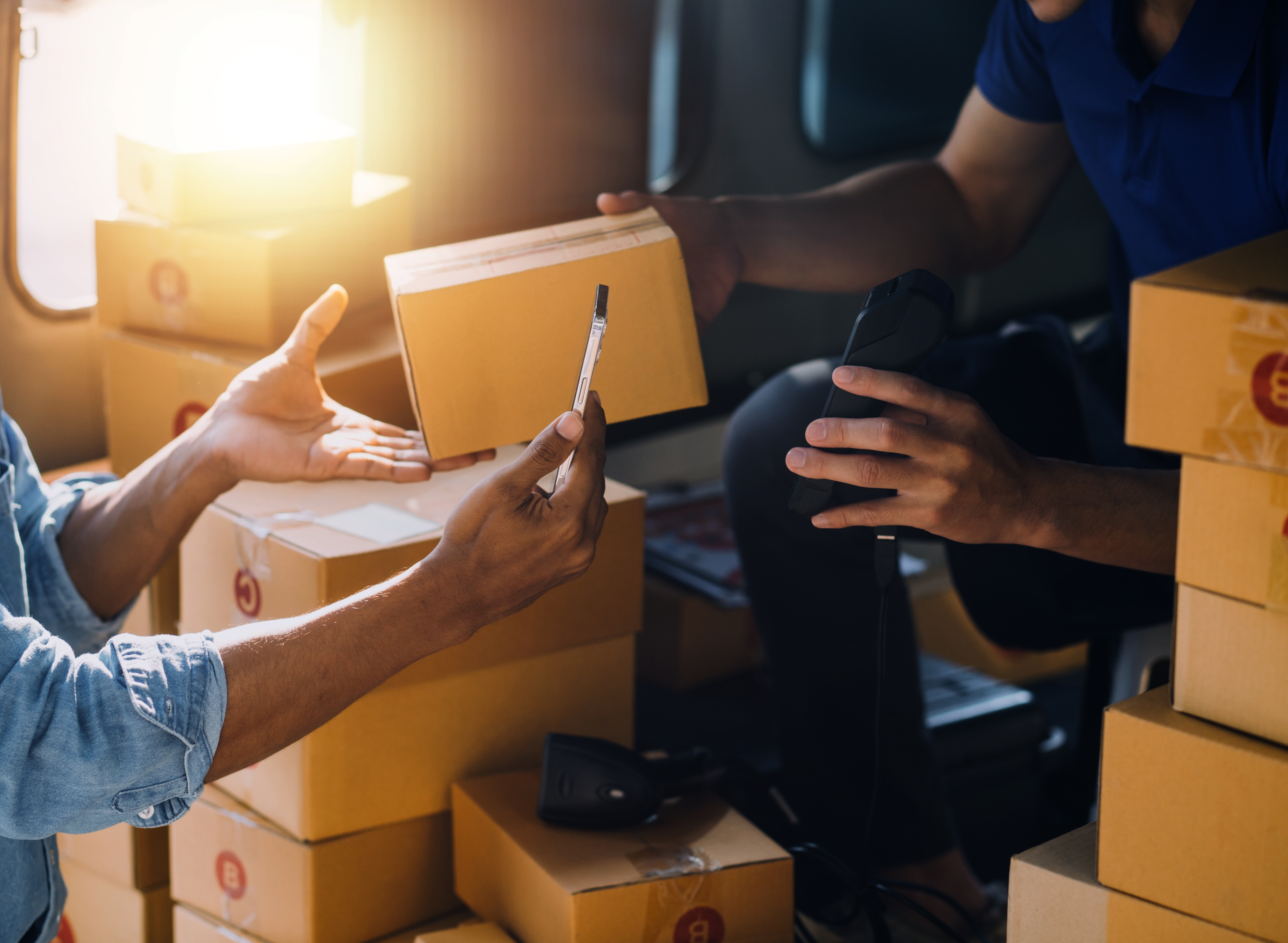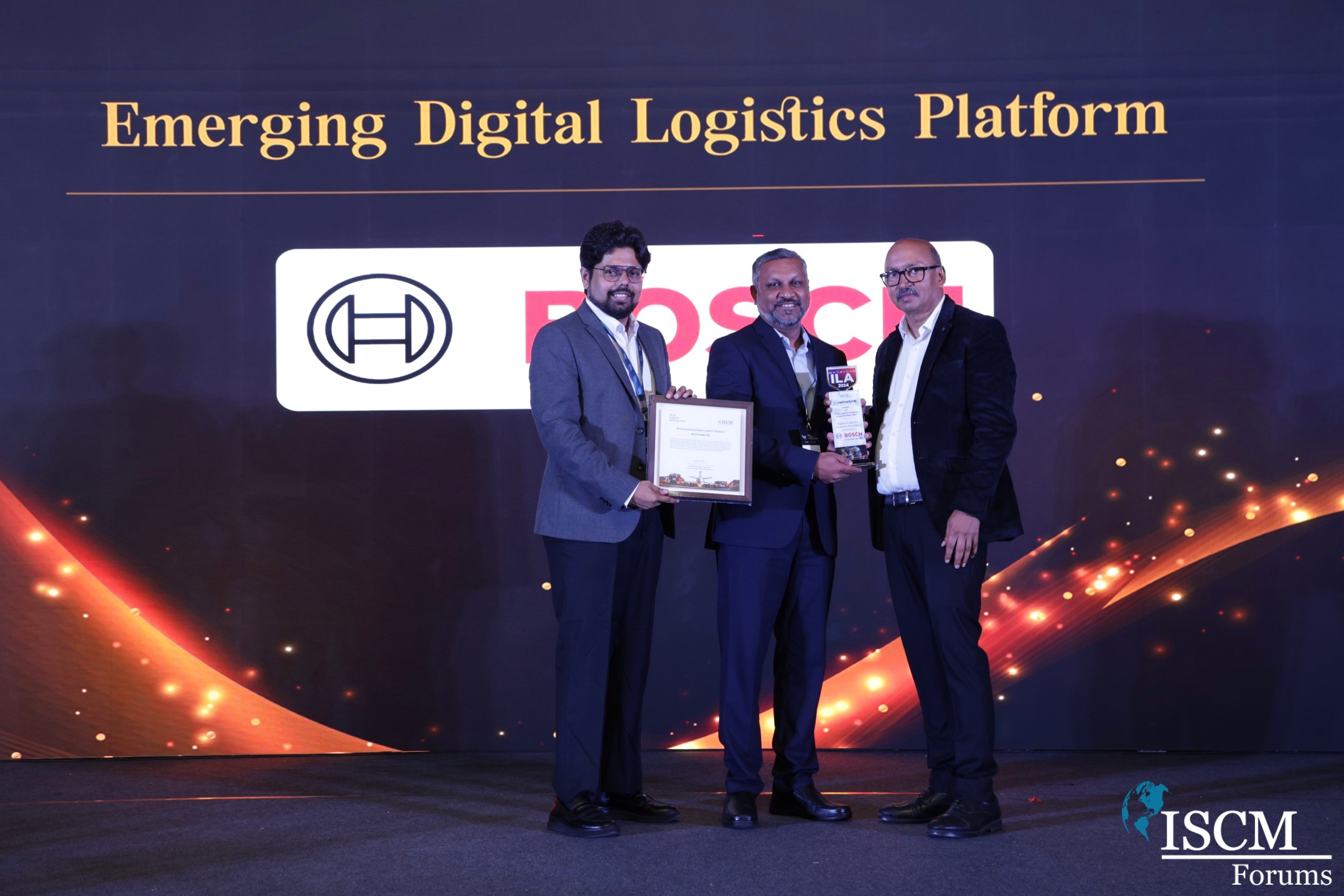This offer is currently only addressed to commercial customers. All prices are exclusive of goods and services tax (GST).
Kevan Anand
Virtual Baskets, Real Journeys: The E-Commerce Revolution driving Modern Delivery Systems
Kevan Anand

E-commerce: The surge and the shift
Every day, every hour, every minute – countless fingers scroll the internet, filling countless shopping carts. E-commerce has changed many things for Indian consumers. It’s not surprising that e-commerce revenue is expected to reach INR 4,416.68 billion by the end of 2024. India has significantly contributed to this surge globally, owing to its vast consumer base and expanding digital infrastructure.
Consumer Behavior: Consumers now demand a seamless shopping experience with diverse product choices, competitive pricing, and speedy delivery. The convenience of shopping from home and the availability of detailed product information and reviews have further fueled this shift towards online shopping.
Market Drivers: Several factors are driving the e-commerce boom in India. Technological advancements among all age groups and geographic locations, such as super-speed internet and digital payment systems, have made online shopping more accessible.
This rapid expansion has revolutionized logistics operations and delivery methods across the country. As more consumers switch to online shopping daily and more players enter the e-commerce space, the demand for efficient, fast, and reliable delivery systems has surged. This has led to significant changes in how goods are stored, managed, and transported. Let’s explore the advancements in delivery methods and the impact of e-commerce on logistics operations.
Impact on Logistics Operations
E-commerce has significantly transformed the logistics industry in India, spurring rapid growth and innovation. The rise in online shopping has led to immense demand for efficient, timely, and reliable delivery services. E-commerce has redefined supply chain dynamics, emphasizing the need for integrated solutions to manage the complexities of order fulfillment. One of the most critical aspects of e-commerce is last-mile delivery – the final step of the delivery process. Innovations such as local distribution centers and urban logistics hubs are being implemented to reduce delivery times and enhance efficiency. Fundamentally, e-commerce logistics differs from traditional logistics due to its focus on individual consumer deliveries, increased emphasis on speed, and the need for streamlined, technology-driven operations.
Traditional logistics involves a process focused on moving large quantities to retailers or distributors, often prioritizing cost-efficiency over speed. The methods rely on centralized warehouses and scheduled, less frequent deliveries, optimizing for scale and predictability rather than the responsiveness demanded by e-commerce. Distribution occurs via established, often rigid, transportation routes. In contrast, e-commerce logistics demands rapid, flexible handling of individual orders, utilizing dynamic networks.
In the logistics journey of e-commerce processes, goods come from the supplier to a warehouse, from there they are reaching a fulfilment centers where they are picked, packed, and handed over to carriers for final delivery to customers. This end-to-end process emphasizes efficiency in handling a large volume of small orders and ensuring fast delivery to consumers. Additionally, it incorporates reverse logistics, allowing for customer returns, which adds complexity but enhances customer satisfaction.
Enhancing speed and maintaining order accuracy are top priorities for e-commerce businesses. Therefore, more businesses are adopting technologies that enable real-time inventory tracking, automated sorting, and efficient space utilization. Companies leverage technology to optimize routes, track shipments, and enhance customer satisfaction. The rise of hyperlocal delivery startups, gig economy couriers, and partnerships with local vendors has expanded service reach, even to remote areas. Consequently, this has reshaped the logistics landscape to be more dynamic and consumer-focused, driving advancements in infrastructure and service quality nationwide.
Advancements in Delivery Methods
Advancements in delivery methods have revolutionized logistics, making the process faster, more efficient, and customer-centric. The integration of technologies has accelerated delivery times and reduced costs. Smart logistics systems, powered by AI and machine learning, optimize route planning and inventory management, enhancing accuracy and reliability. Same-day and even one-hour delivery services have become increasingly common, driven by sophisticated last-mile solutions. Innovations in packaging, real-time tracking, and contactless delivery options have further improved the customer experience, ensuring safer and more convenient deliveries. These advancements are reshaping the landscape of modern logistics and distribution.
Same-Day and Next-Day Delivery
The demand for expedited delivery services, such as same-day and next-day delivery, has significantly impacted logistics operations. Companies are investing in advanced logistics networks and utilizing data analytics to forecast demand and optimize delivery routes. This capability requires a highly responsive and flexible supply chain to meet tight delivery windows while maintaining cost efficiency.
Sustainable Delivery Options
With growing environmental concerns, there is a rising focus on sustainable delivery methods. Companies are increasingly adopting eco-friendly practices, such as using electric vehicles and bike couriers, to minimize their carbon footprint. Initiatives like green packaging and route optimization for fuel efficiency are also gaining traction as part of broader sustainability goals.
Case Studies
Indian e-commerce brands have dramatically reshaped the logistics landscape through several groundbreaking case studies. Flipkart, a pioneer in the industry, transformed supply chain management by building a vast delivery network, strategically placing warehouses, and harnessing data analytics for inventory and route optimization. This innovation sped up deliveries and elevated customer satisfaction. BigBasket's implementation of a cold chain logistics system set new standards for grocery delivery, ensuring the freshness of perishable goods. Collectively, these initiatives have revolutionized logistics infrastructure, spurred technological advancement, and driven economic growth nationwide, setting new benchmarks for efficiency and reliability.
Challenges and Solutions
As online shopping grows in popularity, logistics providers must scale their operations to meet surging demand. This involves expanding warehousing capacities, enhancing transportation networks, and integrating advanced technologies for inventory and order management. However, scalability is not without challenges. Handling larger volumes of orders efficiently while maintaining service quality is complex. Moreover, seasonal fluctuations, such as those during holiday periods, can strain logistics systems, requiring temporary but effective scalability solutions.
Managing costs is critical in e-commerce logistics. High transportation, labor, and technology costs can significantly impact profitability. Strategies to mitigate these costs, such as automation, technology integration, and optimized route planning to reduce transportation expenses, are crucial. Effective cost management ensures economically viable logistics operations that meet the demands of the e-commerce sector.
Way Forward with Tech
Bosch L.OS offers comprehensive digital logistics solutions for e-commerce players in India through an integrated marketplace. This platform provides curated solutions including driver, transportation, fleet management and much more, ensuring efficient and reliable transportation. It enhances fuel, energy, and sustainability practices, supported by advanced hardware for seamless operation. With sophisticated routing and parking solutions, Bosch L.OS optimizes logistics efficiency. The system offers real-time supply chain visibility for on-road operations and robust transportation management, all backed by secure cloud services. These ready-to-use solutions empower businesses to meet their logistics needs effectively, right at their fingertips. This not only reduces operational costs but also enhances customer satisfaction with faster, more reliable deliveries.
Conclusion
The e-commerce revolution in India is driving significant advancements in logistics and delivery systems. As consumer expectations evolve and technological innovations progress, the logistics industry must adapt to meet new demands while addressing sustainability challenges. The future of delivery will likely see further integration of cutting-edge technologies and eco-friendly practices, shaping a more efficient and sustainable logistics ecosystem.


